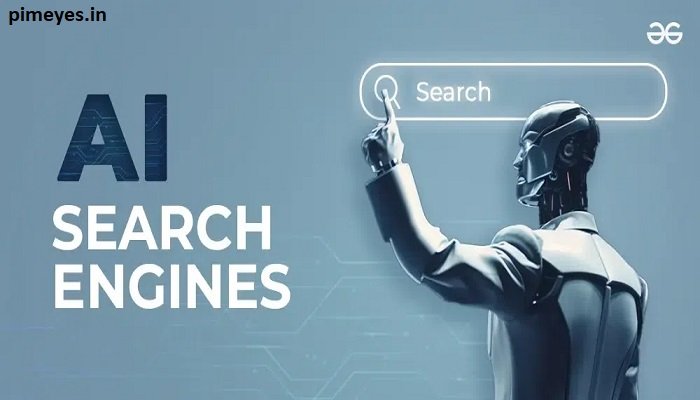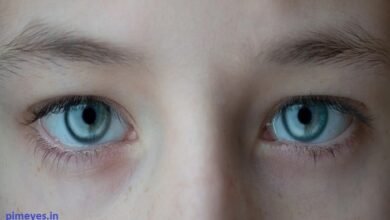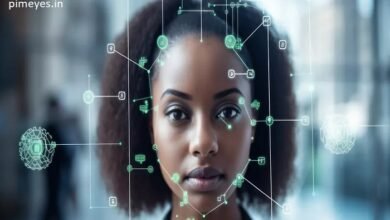AI Image Search Engines: Revolutionizing How We Find Visual Content

In the digital age, visual content plays a central role in how we interact with the world. Whether we’re browsing through social media, conducting research, or simply looking for inspiration, images can speak louder than words. That’s where AI image search engines come in. These intelligent systems are transforming the way we search for images, offering powerful tools that go beyond simple keyword matching. In this blog, we’ll explore the uses of AI image search engines and how they are revolutionizing our digital experience.
What Are AI Image Search Engines?
Before discussing their various use cases, let’s first look at what AI image search engines are. These systems use artificial intelligence to analyze images, interpret them, and find similar images based on what is depicted instead of solely words. Common image search engines depend upon metadata, tags, and keywords, which usually brings narrowness to the search results. AI search engines can search images based on their visual content; they use deep learning algorithms to recognize the objects or scenes in the image and even the emotions present.
How AI Image Search Engines Benefit E-commerce Platforms
E-commerce has revolutionized the global economy, and businesses are under intense pressure to streamline the shopping experience. In this field, AI image search engines can be a huge help. Rather than scrolling through endless pages of products to find something similar, users click to upload a photo or snap a shot of an item they like, and the AI engine will search for identical or similar products that are available for purchase. They enable visual search, making shopping easier and shortening the number of steps–resulting in increased business conversions.
AI image search engines can further optimize personalized recommendations. By examining your previous searches, the AI can get an idea of what types of products you’ll be interested in, leading to a better shopping experience shopping experience. Not only does this enhance customer satisfaction, but it also aids companies in optimizing their inventory and marketing strategies.
Enhancing Content Discovery on Social Media with AI Image Search
Social media platforms are built on sharing visuals, and AI image search engines are playing an important role in how we discover and engage with content. Platforms like Instagram, Pinterest, and Facebook are increasingly using AI-powered image recognition to help users find relevant content more easily.
Let’s say you come across an image of a beautiful sunset or a delicious dish, and you want to learn more about it. With an AI image search engine, you can search using that image to find similar visuals, explore relevant hashtags, or even track down the original creator of the post. This feature is not only useful for users but also opens up new opportunities for influencers and brands to reach their audience more effectively.
The Role of AI Image Search Engines in Creative Industries
AI Image Search Engines are becoming essential tools for design, photography, and art dates. These tools enable designers to use a photo of one of their own creations or an image that represents a similar look to receive inspiration or source material for their designs. The AI naturally looks for similar existing imagery or patterns that may inspire a fresh idea.
For photographers and visual artists, AI image search engines can track how their work is being used online. By utilizing reverse image search features, artists can track where their images have been used without permission and act accordingly.
AI Image Search for Educational and Research Purposes
AI image search engines have many applications outside of commerce and social media. These tools can be extremely beneficial in spaces like education and research. So, whether you’re studying art history, conducting scientific research, or even just trying to find some reference images for a report, AI image search engines can help make the process of visual research a little easier.
For instance, a student doing research for an art project could upload a painting and find out where it has been mentioned in academic papers or books. A researcher might find images of some specific medical condition or wildlife species, performing in less time and with more accurate results than using a traditional image search engine.
AI Image Search and Accessibility: Breaking Down Barriers
One of the most exciting developments in AI image search engines is their potential to improve accessibility. For individuals with visual impairments, AI can help describe the contents of images in real-time, offering a more inclusive experience when browsing the web. By integrating AI image search into various platforms, it becomes easier for those with visual disabilities to interact with content, access information, and even create their own images.
AI image search engines can also help with language barriers. If a user is unfamiliar with a particular language or culture, AI-powered search engines can provide context or translations, allowing for a more seamless and inclusive search experience.
The Future of AI Image Search Engines
With the advancement of technology, artificial intelligence image search engines are likely to develop rapidly. We’re already seeing AI grow capable of recognizing objects and more nuanced elements like emotions, style, and trends. In the future, AI could even predict which images will catch users’ eyes, providing hyper-personalized options tailored to a user’s previous interactions and browsing behaviour.
As AI image search engines continue to improve, we can also expect to see increased integration with other technologies, such as augmented reality (AR) and virtual reality (VR). Perhaps this will open up fascinating possibilities for responsive images; imagine touching an image to reveal another layer of detail sluggishly or swiping to blur it.
Conclusion
Artificial intelligence image search engines are revolutionizing how we search, engage, and explore visual assets. These tools range from improving the e-commerce experience to providing creative inspiration to making it easier for users to use the platform. With the rapid development of AI, the future of image search is already promising, offering users advanced and more personalized methods to find images relevant to them.
From designers seeking inspiration to business owners looking to polish their customer journey to simply people searching for new content, AI image search engines will shape the future of digital discovery, and they will have you covered!
FAQs
What is an AI image search engine? An AI image search engine uses artificial intelligence to analyze and interpret images, allowing users to search for visuals based on content, not just keywords.
How does AI image search work? AI image search works by recognizing objects, scenes, and features within images, helping users find similar or related visuals through machine learning algorithms.
How can AI image search engines help e-commerce businesses? AI image search engines allow users to find similar products by uploading images, creating a more seamless and personalized shopping experience that can increase sales and customer engagement.
Can AI image search engines improve accessibility? Yes, AI image search engines can describe images in real-time for visually impaired users and break down language barriers, making content more accessible to a wider audience.




